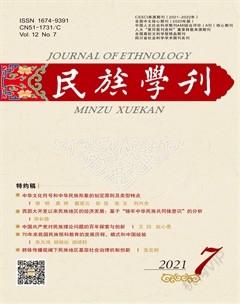Improvement and Innovation of Ideological and Political Education in Minzu Colleges and Universities from the Perspective of OBE: Taking the Program for Training Key Talent with
Du Juan,Xu Junhua
“Five Identities” as an Example
DOI:10.3969/j.issn.1674-9391.2021.07.011
Abstract:This paper explores ways of improving the quality of ideological and political education in Minzu colleges and universities and analyzes the difficulties in ideological and political education in Minzu colleges and universities from the perspective of the OBE theory(Outcome-Based Education). It finds that there are discrepancies between the internal-external coordination mechanisms and the training objectives. They manifest as follows: insufficient internal and external coordination in ideological and political education; lack of innovation and creativity in educational contents and means; uneven development of full-time and part-time teachers in ideological and political education, and unappealing work methods and carrier opportunities; not enough coordination among families, universities, and society; and lack of scientific and logical educational methods. The inconsistencies between teaching content and methods on the one hand and the requirements of the times on the other are mainly reflected in having only one teaching method, outdated teaching content, insufficient efforts to teach students according to their aptitude, and so on.
Through the Ideological and Political Education Improvement Project, Minzu colleges and universities should innovate work methods, “extensively teach on ethnic unity and progress, set up the ‘Five Identities working mechanism, expand exchanges and communication among young students from various ethnic groups, forge a strong sense of community for the Chinese people, and implant the seeds of love of China deep into the heart of every student.” This is not only a theoretical conclusion or practical summary on ethnic work in the new era but also the essential meaning of ideological and political work in Minzu colleges and universities, specifying a logical approach to improving the quality of ideological and political education in Minzu colleges and universities.
The Key Talent Development Program with“Five Identities” has led to the innovation of using “curriculum” as the basis for quality improvement, focus “training”, using “teachers” as a key element, “faculties” as the center, and “students” as the outcomes. This path leads to the intellectual stimulus of ideological and political education and gives full play to the advantages of students as the subjects. With “forging a strong sense of community for the Chinese people” as the main route, Minzu colleges and universities should focus the education on ethnic unity and progress, guide students from all ethnic groups to firmly bear in mind the thoughts of “Five Identities” and “Three Inseparables”(i.e. The Han cannot live without the ethnic minorities, the ethnic minorities cannot live without the Han, and no minority group can live without anyone of the other minority groups)”, and turn the quality improvement project into a “Talent Cultivation Program” or a “Vitalization Project”. In addition, they should lead teachers and students to consciously become the supporters, builders, and defenders of the community of the Chinese people.
Key Words: Minzu colleges and universities; ideological and political education quality; OBE Theory

